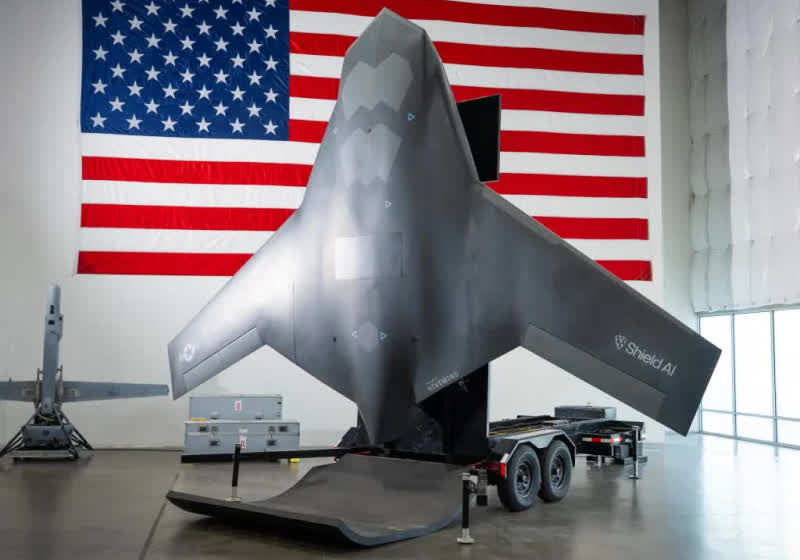
Last week, Bloomberg reported that Microsoft shared internally that it had saved $500 million in call center costs, thanks to AI -- shortly after the company laid 9,000 people off, the third round in a series of layoffs totaling 15,000.
What does this mean for the tech industry -- and job security for humans -- at large?
Also: 60% of managers use AI to make decisions now, including whom to promote and fire - does yours?
Microsoft's layoffs, despite huge profits
According to Bloomberg, Microsoft's chief commercial officer Judson Althoff shared in a presentation that AI tools were improving productivity across several teams, including sales, customer service, and engineering, noting AI had created over a third of the code for Microsoft's new products. Althoff noted AI had reduced customer service costs by over $500 million while upping employee and customer satisfaction.
The fact that Microsoft reported such positive numbers while still eliminating staff -- a move usually reserved for tougher financial times -- added insult to injury for many, especially as remaining execs used AI to generate hiring call graphics and suggested fired employees seek comfort from AI tools. Other reports suggest that many of those roles are being replaced with AI -- in some cases, AI that those now laid off helped to build.
The same week of the layoffs, in an announcement titled "Putting people first," Microsoft launched Microsoft Elevate and the AI Economy Institute. Elevate is a social impact fund through which Microsoft says it will "donate on a global scale more than $4 billion in cash and AI and cloud technology to K-12 schools, community and technical colleges, and nonprofits to help advance their missions." The AI Economy Institute, meanwhile, is a "corporate think tank" focused on "AI for good" initiatives.
Debate over AI's impact on jobs
The news comes as several tech companies and leaders have noted, in rapid succession, that AI is poised to replace at least some percentage of human personnel. In May, Anthropic CEO Dario Amodei said he expects AI will axe half of all entry-level white-collar jobs in the next five years while pushing unemployment up to as much as 20%. A recent survey found that 43% of managers who assessed whether AI could handle their direct reports' jobs went on to actually replace them with AI.
Also: Are software professionals truly an endangered species? It's complicated
At the same time, some research and predictions claim AI will augment some jobs -- and in some cases, even create new roles, though certainly not as many as it eliminates.
ZDNET senior contributing editor Ed Bott, a longtime Microsoft observer, thinks the shift is relatively standard in the context of tech's history.
"Everything I see from the outside is consistent with the view that Microsoft is getting benefits from AI using the same strategies and tools that it is urging its customers to deploy," he said. "That involves automating routine tasks in sales and support, and using tools like GitHub Copilot to generate code that an engineer can edit and test."
Also: 10 ways an IT home lab can help you land your next job - and how to get started (it's easy!)
"It's probably not all that different from the transition that previous generations of workers went through when electronic switching equipment replaced telephone operators, PCs replaced the typing pool, and page layout tools made print designers more efficient," he added.
Bott pointed out that Microsoft has been using machine learning for years "in more advanced settings, such as identifying incidents using enterprise security tools" -- but that these recent announcements don't convince him that "there's any magic at work here."
AI policy's influence
New legislation could also explain the strategy behind Microsoft's layoffs. According to analysis by Morgan Stanley, the Trump administration's recently passed "big, beautiful" tax bill includes research and development expensing guidelines that stand to lower Big Tech's taxable income if companies move money into that sector and out of other areas.
The current administration is creating several incentives (and very little regulation) for AI to speed ahead, without any built-in protections for workers. Trump's AI Action Plan, or formal AI policy, is set to be announced next week on July 23. During his first week in office, Trump reversed any semblance of worker protections included in President Biden's AI executive order.
Also: How I used ChatGPT to analyze, debug, and rewrite a broken plugin from scratch - in an hour
Microsoft's "people-first" initiatives point to a likely landing point between policy and reality: A majority of investments will advance AI in practice while companies release skills training support to bridge the gap between current talent and capitalism's next chapter. Employees and applicants will be expected to take the initiative and use those resources, rather than having regulation-backed protections that encourage companies to maintain more human roles.
There are currently no federal statutes preventing employers from replacing workers with AI -- though "the Department of Labor urges transparency, human oversight, and worker upskilling to mitigate the risks of AI deployment in the workplace," notes Mary Nix, partner at Lynn Pinker Hurst & Schwegmann and a specialist in labor and IP law.
State laws -- including those in Colorado, Illinois, California, and New York -- tend to move slightly faster, but so far, only address safety, bias, and algorithmic discrimination, not worker protections.
Also: How agentic AI is transforming the very foundations of business strategy
"Existing federal anti-discrimination laws -- such as Title VII, the ADA, and the ADEA -- apply to AI-assisted employment decisions, and the EEOC has warned that algorithmic tools may violate these protections if they produce biased outcomes," Nix told ZDNET. "The WARN Act may also require notice when AI-driven automation triggers mass layoffs, though its scope was designed for different circumstances and will need modernization to clearly apply in this evolving landscape."
What the future looks like
How are tech experts and workers reacting to the news?
Tej Kalianda, an interaction designer at Google, believes many companies will follow this layoff trend in the near future -- but thinks that will create more than just employment concerns, especially for creative fields.
Also: How agentic AI is transforming the very foundations of business strategy
"When we exclude humans from shaping AI systems, we build models that are biased, incomplete, and culturally hollow," she told ZDNET, pointing out that AI "remixes" content more frequently than it creates from scratch. "Companies will hit a ceiling when they realize their tools can only recombine what already exists. True innovation requires the messy, unpredictable terrain of human creativity."
Kalianda's comments point to an obvious reality: AI needs to get its training data from somewhere, lest it suffer model collapse. "Right now, AI feeds on decades of human-created culture. But if we stop investing in people who create culture, rather than just analyzing it, we'll run out of fuel," she said. "The companies that understand this will thrive when computational efficiency matters less than the capacity to imagine what doesn't yet exist."
John Kain of AWS recently offered ZDNET a similar prediction on originality, but for finance: The influx of AI workers will create a "premium on creativity and judgment" in the sector, distinctly human talents that will differentiate automated management from personalized attention.
Also: Anthropic's Claude dives into financial analysis. Here's what's new
"Existing labor laws were not designed for the speed and stealth of algorithmic displacement," says Patrice Lindo, CEO of professional consultancy Career Nomad. "Most workers can be replaced under 'business necessity' arguments, and companies are not obligated to retrain or redeploy displaced talent."
The solution? "Regulators need to move beyond slow 'AI ethics frameworks' and toward enforceable transparency and accountability laws," Lindo adds, noting that they should demand advance notice for incoming automation, displacement impact assessments, and retraining funds. "Legally, we could amend Worker Adjustment and Retraining Notification Act thresholds, tie tax incentives to retraining, or mandate algorithmic transparency when jobs are impacted, but political will is the real barrier."
For others, upskilling is simply the reality. "I hate to say this because I truly care about people and their livelihoods -- but technological innovation always brings with it winners and losers in the job market," notes Jennie Baird, a board member at Ethical Tech Project. "Speaking as a compassionate pragmatist/techno-humanist, I believe that we as a society would do well to make upskilling and reskilling programs readily available and focus on helping workers develop flexible mindsets and critical thinking skills that will help them adapt and adjust in a changing marketplace."
Also: The best free AI courses and certificates in 2025 - and I've tried many
Baird also points out that upskilling can obscure other motives, noting that the $4 billion Microsoft Elevate sets aside "serves their goals of building a market for and adoption of their tools."
"Is any of that designated for responsible AI training, ethics considerations, development of moral frameworks or standards?" she asks.
Ultimately, like many others, Baird feels the AI job shift is inevitable. "If your job is not disrupted or significantly transformed by AI in the next 5-10 years, I think you will be in the minority," she concludes.
Want more stories about AI? Sign up for Innovation, our weekly newsletter.

 3 months ago
38
3 months ago
38







 English (US) ·
English (US) ·